Many parents are worried that a 2-year-old child does not sleep during the day. Some people think that this is completely unnecessary - he doesn’t want to, well, he doesn’t need to, he’ll go to bed early in the evening! And this approach is completely wrong; preschool children must rest during the day, and sleep is an obligatory stage of the regime. During sleep, children not only rest, but also grow, the functioning of the nervous system is normalized, the immune system improves, and without sleep, all this will happen with malfunctions, as nature intended! In this article we will find out the reasons why a 2-year-old child does not sleep during the day, and we will teach how to deal with them. From the publication you will understand why a child generally needs to sleep during the day and how long it lasts according to the standards.
How long does a 2 year old child sleep during the day?
Let's start with physiological norms, and it is worth noting here that modern children, from infancy, have gone far from the usual norms - they sleep less! For today's two-year-old children, it has become the norm to go to bed only once a day, whereas 10 years ago sleep was required every 6 hours of wakefulness!
Today, a modern two-year-old child sleeps 2 hours a day - this is the norm in medicine, but in practice, all children are individual. One can sleep for an hour and a half, another - 30 minutes, and the third is ready to break away from daily activities for 3 hours.
How long should a child sleep?
There are hundreds of different charts and charts regarding bedtime recommendations for children. Don’t get too carried away with them, after all, all children are different. However, you need to know the recommendations so that you don’t at least radically deviate from them.
The American Academy of Sleep Medicine (AASM) has published consensus recommendations regarding the amount of sleep needed for optimal health in children and adolescents to avoid the health risks associated with insufficient sleep. The recommendations are as follows:
- The American Academy of Sleep Medicine guidelines do not provide data for infants younger than 4 months of because of the very wide range of sleep durations and patterns for infants of this age. There is also insufficient evidence for the health effects of sleep duration at a given age.
- Babies between 4 and 12 months should sleep 12 to 16 hours a day on a regular basis.
- Children aged 1 to 2 years should sleep 11 to 14 hours a day on a regular basis.
- Children aged 3 to 5 years should sleep 10 to 13 hours a day on a regular basis.
- Children aged 6 to 12 years should sleep 9 to 12 hours a day on a regular basis.
- Teens ages 13 to 18 should sleep 8 to 10 hours a night .
You may ask, how long should a newborn sleep? According to the National Sleep Foundation
(National Sleep Foundation):
- Babies between 0 and 2 months should sleep about 10.5-18 hours per day .
- Infants aged 3 to 12 months should sleep 9.5-14 hours per day .
For clarity, let’s summarize the above data and create a table:
| Age | How many hours of sleep do you need per day? |
| from 0 to 2 months | from 10.5 to 18 |
| from 3 to 12 months | from 9.5 to 14 (according to NSF) |
| from 4 to 12 months | 12 to 16 (according to AASM) |
| from 1 to 2 years | from 11 to 14 |
| from 3 to 5 years | from 10 to 13 |
| from 6 to 12 years | from 9 to 12 |
| from 13 to 18 years old | from 8 to 10 |
Should you worry about lack of daytime sleep?
Some parents are very concerned about the question of why the child does not sleep during the day at 2 years old. But is it really dangerous for health?
If a baby sleeps at night, not 10-11 hours for his age, but only 12-13, and during the day he feels great, nothing bothers him, he is not capricious, then there is no need to worry at all. This is mainly due to genetics, and many parents of such children recall that at an early age they themselves began to give up daytime rest in favor of games, but at night they needed more time to sleep.
If a child of 2 years old does not sleep during the day, sleep at night is 10-11 hours or less, and during the day he becomes lethargic, capricious, but still refuses to sleep (or simply cannot sleep), then you should think about visiting a specialist - a neurologist , psychotherapist and psychologist.
Night and daytime sleep norms for a two-year-old child
A 2-year-old baby will develop normally provided that he sleeps 12-13 hours a day. Daytime rest still plays a very important role. It should take about 2 hours, maybe a little less. If for some reason the child did not sleep or did not get enough sleep during the day, this time must be compensated by adding to the night's sleep. It is important to understand that, taking into account greater fatigue, it is recommended to even increase this compensation slightly, at least by half an hour.

Particular attention should be paid to the process of preparing the little one for bed. Games, walks, meals and hygiene procedures should be done within about 6 hours. It turns out that a baby who gets up at 9 a.m. should sleep during the day from 2 to 4 p.m., and go to bed in the evening no later than 10 p.m. Ideally, this schedule should be shifted by one hour so that the child gets used to waking up earlier.
The importance of naps for children
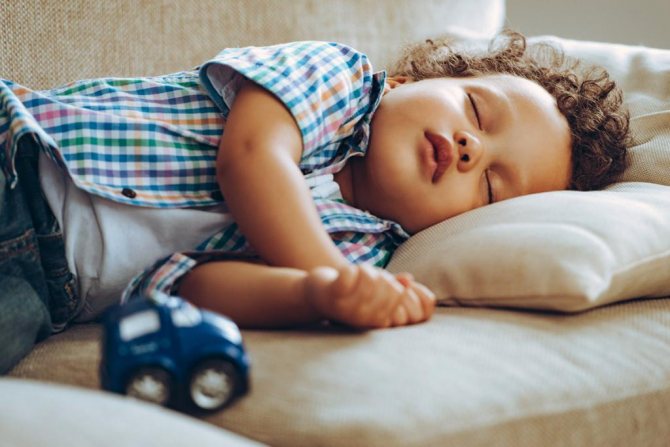
Even without consulting a specialist, everyone knows that a well-rested child is active, cheerful, full of energy, attracted to learning new things, and his memory and reflexes work much better. A baby who has not had enough sleep is lethargic, cannot occupy himself, constantly whines, and is apathetic. That is, sleep affects the child’s psychological state.
Sleeping during the day is a simple and necessary prevention of overexcitation of the nervous system. By about two years of age, mental and nervous processes in the brain begin to become more complex, and all this leads to overwork and overexcitation. And if the baby does not sleep during the day, then due to nervous overexcitation he will not be able to sleep normally, and in the morning he will get up poorly, without sleep, without mood. Constant lack of sleep leads to a decrease in the child’s immunity, attention, and mental abilities.
During sleep, the brain and nervous system do not rest, but they stop receiving new information and can easily “sort out” what they have already received. Daytime sleep for a child is a kind of reboot, and without it the baby will begin to “freeze.”
Next, we suggest moving on to a review of possible reasons why a 2-year-old child does not go to bed during the day.
How much should a 6 month old baby sleep?
The required duration of sleep during the day naturally decreases with each month of the baby's life. Meanwhile, the need for rest in young children is still much higher than in adults, since babies get tired very quickly, although they are not fully aware of this.
So, a child who is too tired will become unusually capricious and irritable, but despite this, will not be able to fall asleep on his own. If such episodes are present in the baby’s life too often, he will begin to lag behind his peers in development and, in addition, he may develop certain health problems.
A young mother must understand exactly when the moment comes at which the baby needs to be put to bed. Of course, each baby’s body is individual, but still there are certain norms for the duration of rest for each age, which should be adhered to at least relatively. In this article, we will tell you how much sleep a 6-month-old baby should sleep in order not to experience discomfort associated with overtiredness throughout the day.
How much should a 6 month old baby sleep?
The total duration of rest for a six-month-old toddler during the day is normally from 14 to 15 hours. Meanwhile, this value can be a little more or a little less, depending on the individual needs and characteristics of the tiny organism.
The lion's share of the total duration of rest is night sleep. As a rule, it lasts about 11 hours, but this does not mean at all that a baby can sleep for such a long period of time and not wake up. Almost all babies aged 6 months get up 2-3 times a night or even a little more to eat. In addition, babies may be bothered by teething and other problems that impair the quality and duration of sleep at night.
The duration of sleep during the daytime is usually about 3.5-4 hours, but it is at this time that a transition period begins in the baby’s life when he changes from one mode of daytime rest to another.
How many times does a 6 month old baby sleep during the day?
Before the start of the second half of life, the vast majority of babies have to be put to sleep 3 times during the day. Meanwhile, after 6 months, many babies no longer need to rest as often. Boys and girls begin to gradually adjust to 2 day rests, and the duration of each of them is from 1.5 to 2 hours.
The following table will help you study in detail how much a child sleeps under 3 years of age and, in particular, at 6 months:
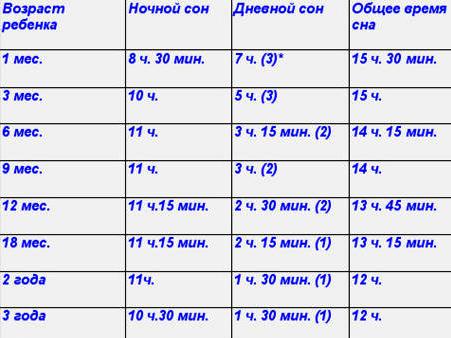
No mode
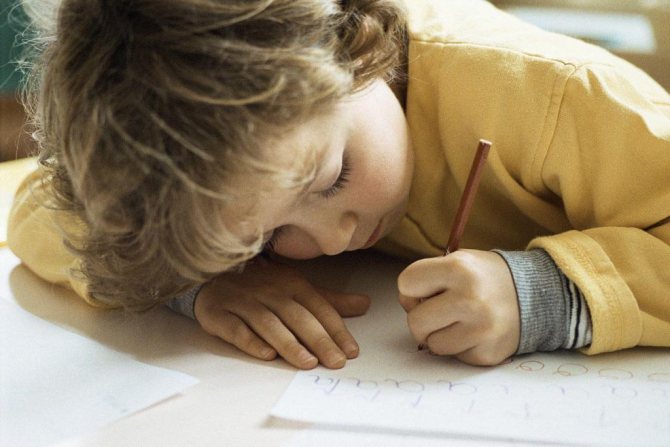
This is the main reason today, and mainly concerns children who do not attend kindergarten. According to Dr. Komarovsky, a 2-year-old child does not sleep during the day due to the fact that it is simply not in the routine, the parents did not teach it. And indeed, many people think that “training” in the form of a regime is of no use to a child; it is cruel to demand that a child perform mandatory actions.
Experts hasten to assure that there is nothing cruel in the regime, and this is a simple set of mandatory tasks that need to be completed in a day, and preferably at the same time - this gives a feeling of comfort and stability, the child learns to manage his time from an early age, which will be useful to him in later life.
We’ll tell you how to create a daily routine at the end of the article, but for now let’s move on to other reasons why a 2-year-old child refuses to sleep during the day.
How long should a 6 month old baby sleep?
Experts say that, in accordance with average standards, six-month-old babies should sleep about 10 hours at night, and about 4 more hours during the day. But if a particular baby’s sleep duration is slightly different, there is no reason to worry. After all, every child is individual. In addition, children's sleep is influenced by several factors at once. These include the psychological and physiological state of the child, his daily routine, temperament and others. In any case, as the baby grows, the duration of his sleep will gradually decrease.
But not all kids agree to such a regime. So, some people prefer one daytime nap at this age, while others prefer two, but shorter ones. Therefore, parents should focus on the condition of their child. That is, if during the day the baby is capricious, whines, tosses and turns in the crib for a long time, does not want to play with toys, or bends over, then this will definitely indicate a lack of sleep.
Late rise
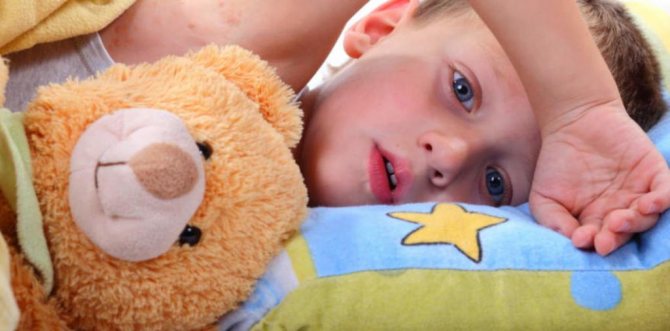
This, again, is due to the lack of a regime. If a child wakes up late, sleeps for more than 12 hours, and feels great during the day, then there is no need to worry, but you still need to think about the routine.
If the baby sleeps normally, but wakes up by noon, it means he goes to bed late, which is also bad. Start putting your child to bed earlier, wake him up no later than 9 am, and thus by three o’clock in the afternoon he will get tired and agree to lie down to rest.
Not wasted energy
Do you follow the regime, but still your 2-year-old child does not sleep during the day? And look what he does. If a child sits with a gadget in his hands since the very morning, draws, watches TV, leafs through a book, then he simply does not have time to get tired and waste energy. Of course, by about five in the evening he will want to sleep, but this will be impossible, since late daytime sleep pushes back nighttime sleep, and this disrupts his routine. What to do?
Move all the chores planned for the first half of the day to the second. Before lunch, take your child for a walk: to the playground, to the park, to the zoo, just shopping, to the pool, or anywhere, just so as not to sit at home! The child will have time to spend all his energy before lunch, get pretty tired, and then eat and go to bed. Here you can relax peacefully, or take care of the things that are left over from the morning.
Emotional overexcitement
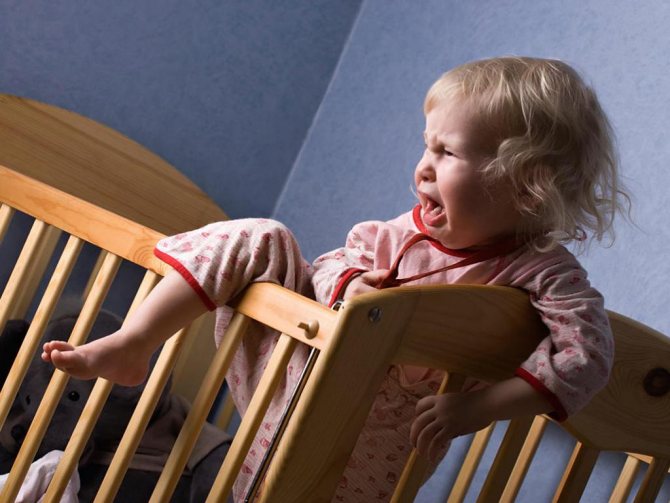
If a 2-year-old child does not sleep during the day due to some events (guests arrived, took a pet home, moved, and so on), then this is an emotional outburst that simply does not allow him to perceive fatigue. What to do in this case?
If possible, avoid emotional outbursts at this age. But if this happens, you will have to wait it out, it lasts no more than two days, and then everything will get better. If in this case it is not possible to put the baby to rest during the day, then do not force him, he will only begin to be capricious. In the evening, try to put him to bed early so that the child sleeps for the required time per day.
Four month old baby's sleep
The difference between the rest of a three-month-old baby and how much a child should sleep at 4 months is not great - from half an hour to one hour. Based on this, 14-14.5 hours is the optimal daily sleep for a child in this age period. The decrease in total rest time is due to a decrease in daytime sleep - the baby sleeps about 2-3 times for a couple of hours. Rest at night remains the same: 10-11 hours . It is very important to establish daily rituals before going to bed at night: a bath at a comfortable temperature, for example, a soothing massage. Such actions of parents form the right habits and make their life easier.
External stimuli
If a child does not sleep during the day at 2.5 years or earlier, then pay attention to what may interfere with this:
- Is the room too stuffy? If this is the case, then open the window slightly, or install a fan.
- Maybe it's cool? Turn on the heater, but away from the bed so that your baby doesn't accidentally get burned on it when he wakes up.
- Is the room too bright? Close the curtains and hang extra thick fabric curtains.
- If extraneous sounds are disturbing (neighbors are doing repairs, children are running in the yard, and so on), then playing quietly, calm music or having the TV on (not on a cartoon channel) will help. Quiet sounds in the room will be in the foreground, and the child will stop perceiving loud sounds from outside.
- Perhaps the baby stopped sleeping during the day after the decor in his room was changed? For example, did you rearrange or replace the furniture, paint the walls or re-glue the wallpaper? Then he is simply still adapting, he is unusual in his room, and he feels like a guest here. In this case, you will also have to wait.
- Uncomfortable pajamas, poor quality material of pajamas or bed linen. All this creates discomfort. The child is uncomfortable, uncomfortable, hot, perhaps something is pricking, a seam is pressing somewhere. Inspect bedding and sleepwear thoroughly and replace if necessary.
Fright

If a child at 2 years old stops sleeping during the day, and even gets up at night and has tantrums, then most likely he is scared. What could have caused it?
- Parental quarrels, fights that consistently occur in front of the child. Perhaps the baby heard swearing at night, and because of this he woke up and got scared.
- At night, in a dream, the child could hear sounds coming from the TV, or catch a glimpse of a fragment of a horror film or action movie. All this has a strong impact on the psyche, and the child is simply scared, refuses to sleep during the day, and at night he simply “passes out” from fatigue.
- Pets or outdoor animals. For example, a dog suddenly began to bark.
- Sharp noise, thunderstorm.
What to do? Eliminate everything that can frighten the child, do not swear when the baby is at home, watch TV quietly when he sleeps, and do not watch horror/action films while the child is awake.
The main mistake of parents
Many parents are sure that a routine is not needed, and the child will go to bed during the day if he gets tired. This is all wrong! From a very early age, a child is interested in everything, and it would be better for him to stay awake, communicate with his mother, but not sleep, and if measures are not taken to ensure that the child falls asleep, he will simply become overtired. Up to two years, and even later, from overwork, many people actually fall asleep right in the toys, but this is no longer a healthy sleep. Firstly, the baby fell asleep later than necessary, which means it will be more difficult to put him to bed in the evening. Secondly, the child really just “knocked out” and fell asleep in not the most comfortable environment.
In this case, a regime to which you will have to gradually accustom the baby will help. This is absolutely necessary if you want your child to grow up healthy.
How to build a daily routine and get your child to sleep?

We invite you to familiarize yourself with the approximate daily routine that any child and his parents should follow. If the baby does not go to the kindergarten, where this very regime exists, then create all the conditions at home:
- From 7 to 7.30 you need to wake up. Then half an hour to wash, stretch, change from pajamas to home clothes.
- From 8 to 8.30 you need to have breakfast. Then we go together to make the bed, tidy up the toys, and water the flowers. Anything, just not for TV!
- From 9 am to 11 pm there is an entertainment program. These are walks in the park, on a playground for children, shopping, to the zoo, and so on.
- Then you can have a snack: fruit, tea with cookies. Until one o'clock in the afternoon you can read, watch TV, play calm games.
- From one o'clock in the afternoon until half past one we have lunch, then we digest the food for half an hour and go to bed for the day's rest.
- From 14.00 to 15.30 or 16.00 you need to sleep. If the child doesn’t want to, then close the curtains and ask him to just lie down with his eyes closed while you read him a fairy tale. The voice should be calm and monotonous. As a last resort, lie down next to you, the child will fall asleep faster this way.
- At 16.00 or 16.30 - afternoon tea.
- From 17.00 you can walk for an hour or an hour and a half.
- Dinner at seven in the evening.
- You can play and read until 8. Next is swimming.
- Lights out at 21:00.
This routine will help you get your baby used to napping!
How much should a 2 month old baby sleep?
When the child reaches two months, a more or less comfortable regime is usually established. The baby begins to raise his head, his movements become a little more varied, and the time of distress increases. Now the total amount of sleep is approximately 18 hours, sleep at night increases and ranges from 8 to 11 hours, and during the day, divided into 4-5 sleeps, from 5 to 7 hours . If the mother does not miss the first signs that the child wants to sleep, such as rubbing his eyes or the appearance of subtle bruises under the eyes, then putting the baby to bed is not so difficult. By skipping this moment, parents may end up with whims and problems with bedtime.









